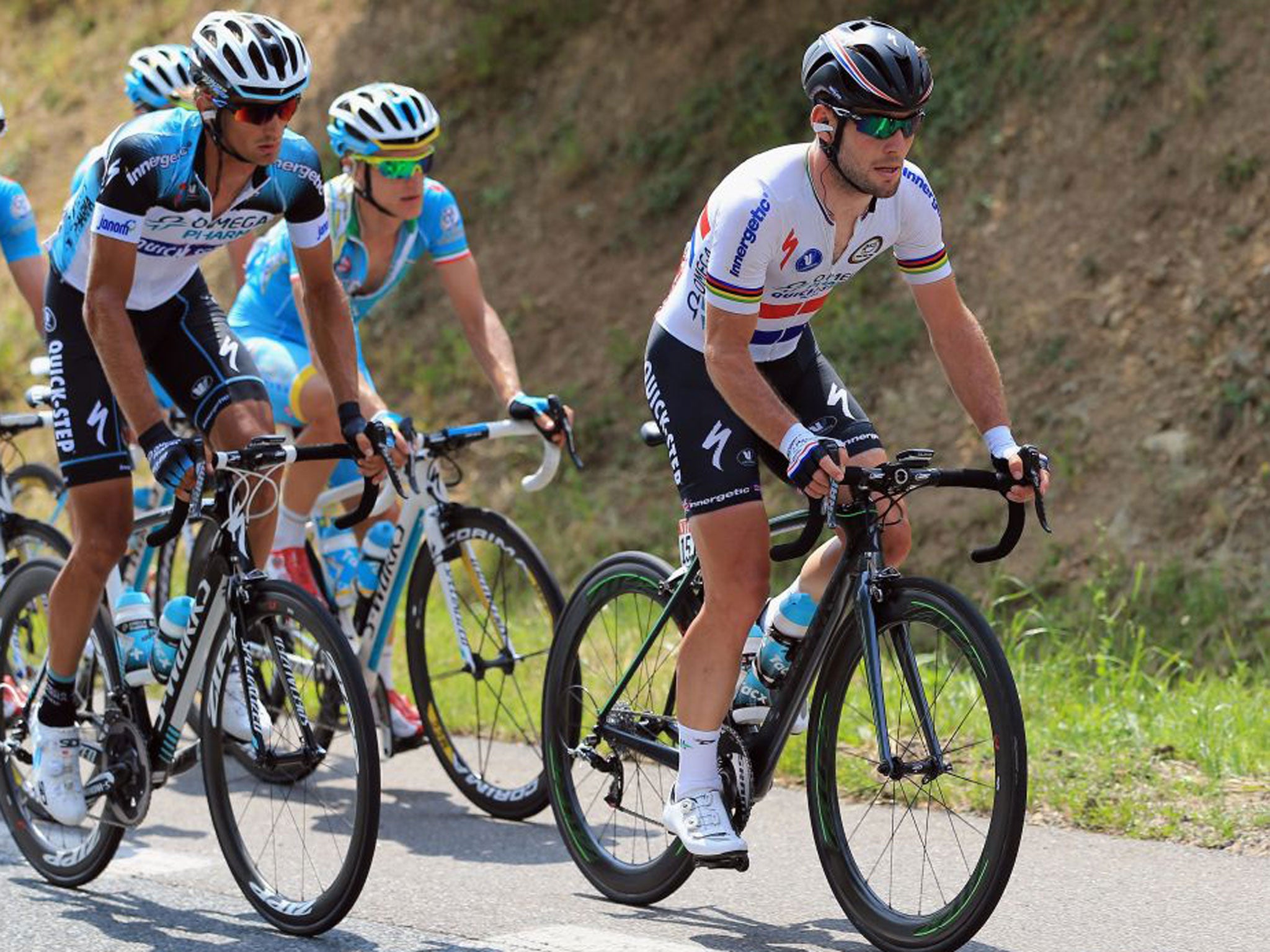Tour de France 2013: One final hurdle before Paris for Mark Cavendish and Co

Chris Froome is now just one obstacle away from claiming his first Tour de France title in Paris: one short, and particularly vicious Alpine stage today.
And he is not the only British star on the race who will be worrying about it either: for Mark Cavendish, too, it is his last real challenge prior to tomorrow’s big sprint.
Just 125 kilometres (77 miles) long, the stage is unlikely to upset the Sky applecart completely, given Froome’s overall domination but it could yet produce some important changes in the general classification. The long but comparatively gentle first category Col de Ravard, which is the first main difficulty of the day, will probably do little more than weed out the worst non-climbers, the ill and injured. But the second and final major climb of the Tour de France, the 10.5km (six miles) ascent to the Annecy-Semnoz ski station, can wreak one last round of damage to already exhausted legs.
“It’s a very tough climb, particularly on the lower slopes,” says Philippe Court, chief cycling correspondent at the regional newspaper, Le Dauphiné Libéré. “The first three kilometres are exceptionally steep, and then it eases out a little bit.
“The last segment is very exposed, and if it’s windy it’ll be very tough going. But it’s steady at least – no sudden changes of pace – and the road surfaces are good. It’s not the hardest climb of the Alps - it’s as difficult and steep as Alpe D’Huez, say.”
In fact, it is marginally steeper, with average gradients of 8.5 per cent compared to the Alpe’s 8.1 per cent.
Indeed, the challenge will not just be for Froome. For sprinters like Cavendish the stage represents a painful last step before, hopefully, battling things out in Paris on Sunday.
The reason is the “time cut” – cycling argot for the percentage of the winner’s time within which all riders must finish. If they finish outside this limit (which varies on the race speed), then they are automatically eliminated. Normally the Tour casts a blind eye over any large group of riders that fail to complete the course within the permitted time, and sprinters traditionally gang together in the so-called gruppetto or autobus to ensure this takes place and they are allowed to continue. But this year the Tour organisers have been adamant they will not permit it. Cavendish and his rivals André Greipel and Marcel Kittel, then, will have to keep a high pace, and a close eye on their watches.
Annecy-Semnoz is also memorable for reasons the Tour de France is perhaps not so willing to recall in its centenary edition, given the last time the peloton reached it, in 1998, the riders went on strike and refused to race.
The scale of the drugs scandals in that year’s Tour led to one team, Festina, being ordered to abandon and repeated police raids on team hotels. By the end of the Alps, nerves were so frayed that teams began pulling out of their own accord, and at the foot of the Annecy-Semnoz, the entire bunch stopped pedalling.
After prolonged negotiations the riders continued, but at a deliberately slow pace, over the remaining climbs to Aix-les-Bains, where four more teams, three Spanish and one Italian, quit the race in protest. The rest of the bunch, now down to half its original size, struggled on to Paris.
This time round there is no chance of such protests or withdrawals, but the risks of a last-minute abandonment are still high for a very simple reason. Physically, riders are running on empty.
And this is where the real knife-edge lies: after three weeks of racing, riders’ strength is now at a minimum. With body fat well below healthy levels their vulnerability to any stray hotel virus or bug is sky-high. That old cliché, then, about the Tour never being over until you reach Paris, is truer than ever this year.
Subscribe to Independent Premium to bookmark this article
Want to bookmark your favourite articles and stories to read or reference later? Start your Independent Premium subscription today.

Join our commenting forum
Join thought-provoking conversations, follow other Independent readers and see their replies